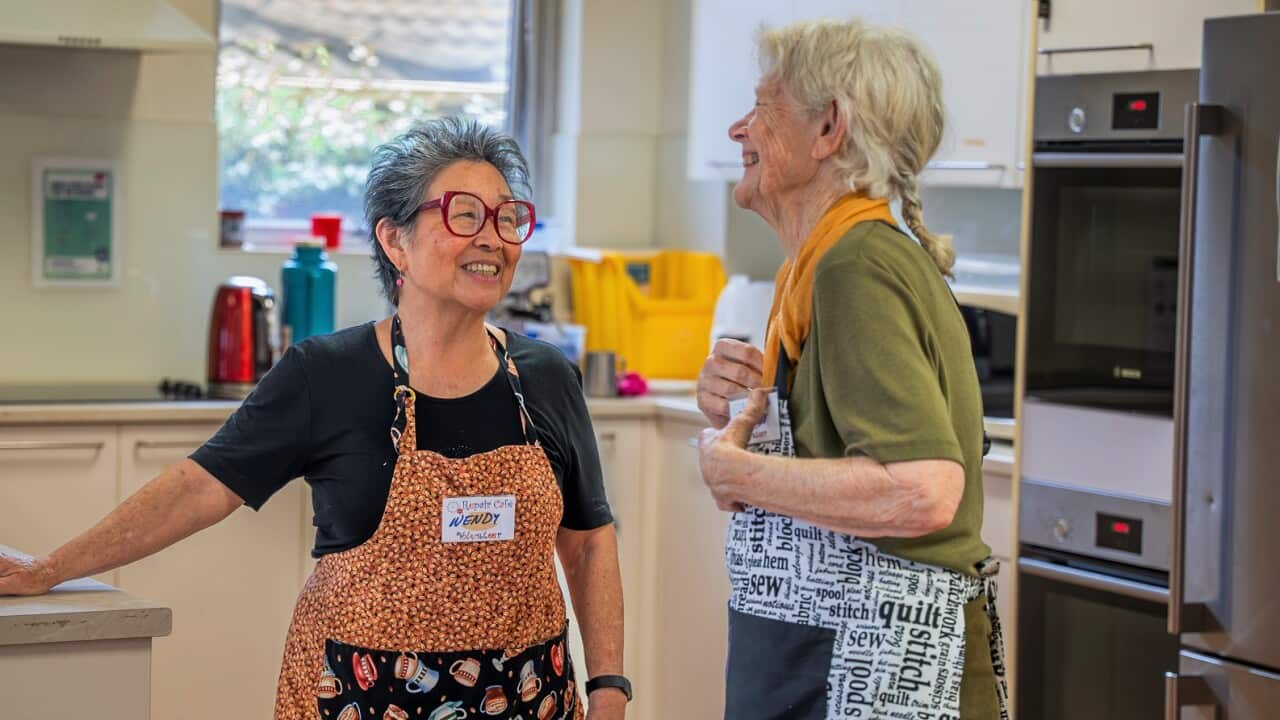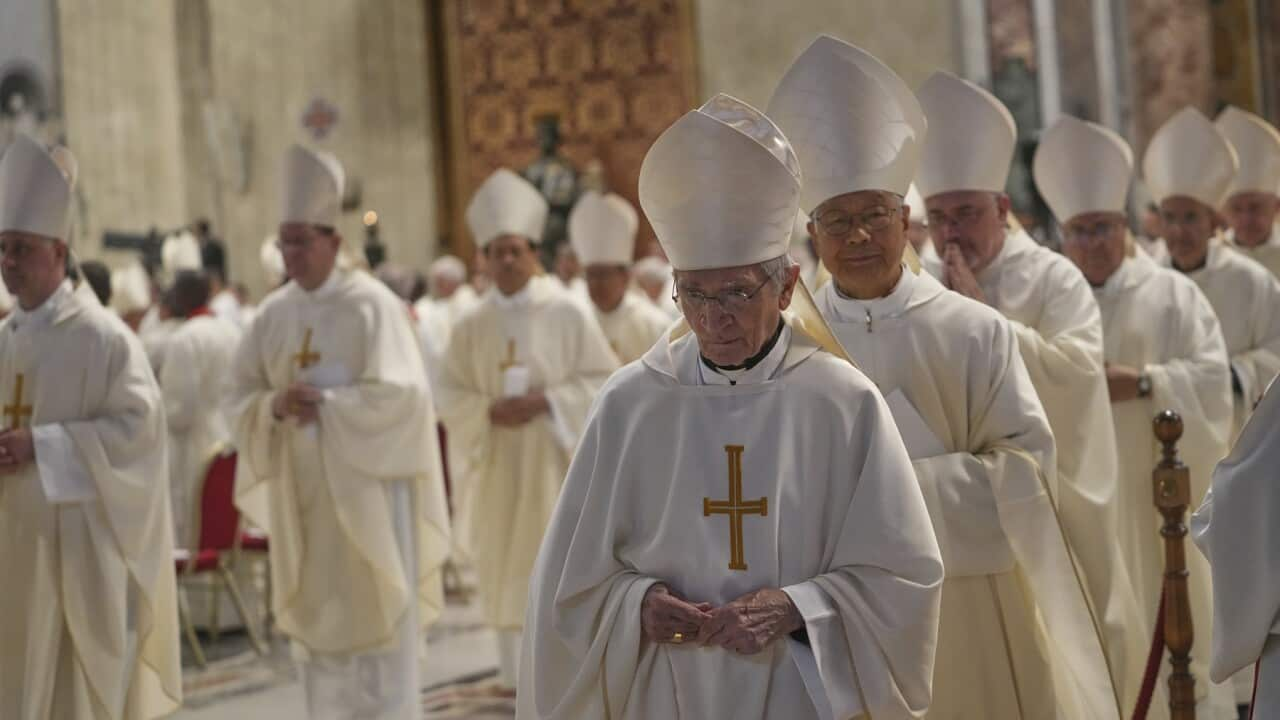TRANSCRIPT
"This is a hair straightener, which I can't fix it today. My suggestion is if you take it to the community recycling centre."
Ian is a volunteer at a repair café in Sydney.
While Ian had no luck this time, around two-thirds of the 1,000 items brought to the Lane Cove Repair Café so far this year were mended.
Co-founder Wendy Dwyer says that kept 700 items out of landfill, and it’s not just hair stylers.
"Today we'll be doing repair in household electrical items, pants and shirts and things that need mending, jewellery, ceramics, shoes, bags. And we'll also be sharpening tools."
The café is on two levels and packed with visitors.
Wendy says some have brought along heritage items, with special sentimental value.
"For people who brought heirloom items that maybe they have got it from their family back home, we would be one of those few places that will actually look at it and repair it, free of charge."
Ms Dwyer is 73 and migrated from Singapore.
She is qualified in psychology and, after working as a counsellor at TAFE, spent 20 years helping migrants and refugees improve their English language skills.
She is now one of Australia’s repair café volunteers, and the group includes retired engineers, jewellers, and tailors.
"I make the cappuccino and all the homecooked little snack things for the volunteers and also for the visitors. In retirement it's really, really important to find something that you're passionate about and for me it's finding the repair cafe and believing in what it does."
And this community is growing steadily, with 112 cafes operating across Australia.
The movement started in Amsterdam as chair of the Australian Repair Network, Professor Leanne Wiseman from Queensland’s Griffith University explains.
"The International Repair Cafe movement just celebrated its 15th anniversary. There are now over 3,000 repair cafes around the world in 40 countries. It's wonderful to see people come together er and that's really a great way to save money, to get your clothing fixed, to get your appliances fixed."
Professor Wiseman says there’s a broader need for services like this.
"The national household appliance market in Australia is projected to reach over $13 billion in 2024, and that figure is growing every year. We see an exponential growth in consumption of smart goods and devices in our homes. So, our washing machines, our fridges, our toasters, kettles, air fryers, what's happening is all of these machines, once they break, they end up in landfill."
But landfills are filling rapidly, as Lane Cove says Repair Café’s Bridget Kennedy.
"We are going to run out of landfill here 2030 now in greater Sydney region, we just keep buying stuff and chucking it out. We just need to change that policy of this one-way trip to landfill and become really, make it much a more circular system."
One problem is that many modern electrical appliances are not easy to fix if they break.
The federal government recently flagged new ‘right to repair’ laws that would give households and businesses access to repairs at reasonable prices.
It’s part of a $900-million push to boost productivity.
Professor Wiseman welcomes the move.
"Australia has been lagging behind the rest of the world, particularly with right to repair reforms. We know that there are not only environmental savings by reducing waste, but the economic savings, particularly in a cost-of-living crisis that we're currently facing, are huge. What this will mean for all Australians, not only our consumers but our businesses and potentially our farmers and our hospitals, that they will be able to get the things that they own and buy repaired. "
For those on the frontline, it’s a win-win as Wendy Dwyer explains.
"I feel very, very proud of the work we do here. And it's fantastic to see things saved from landfill, people actually saving money and repairing things that are precious to them that they really don't want to throw out, but they might not be able to afford to get it repaired. And of course with the environment, reduce stuff that's put on curbside. Yes, and a better future for our community. "














